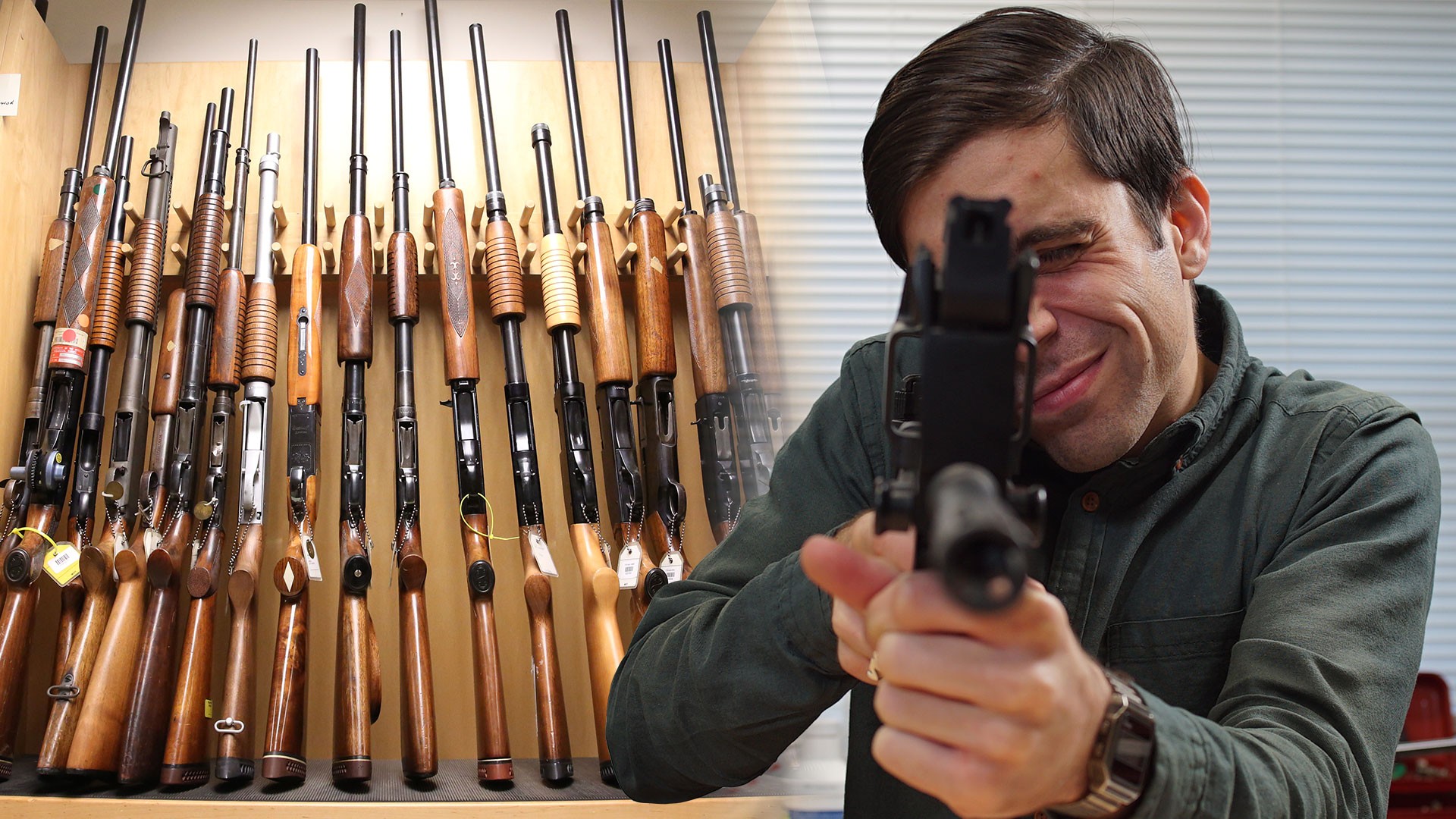A makeshift memorial for the victims of the Sandy Hook Elementary School shooting in Newtown, Connecticut, in 2012. BRENDAN SMIALOWSKI / Getty Images
Every year, tens of thousands of people die by firearms in the United States. In 2015, it was 36,252 people, according to the Centers for Disease Control and Prevention—and 12,979 of those deaths were homicides. Those numbers don't tell the full story, though. They certainly don't get us anywhere close to answering questions about why gun violence happens, who it affects most, and how we can prevent it.And that's intentional: for more than two decades, the National Rifle Association, with congressional help, has almost completely stymied publicly funded gun research. An NRA-backed amendment to the 1996 congressional appropriations bill prohibits any CDC funds from being used "to advocate or promote gun control." In 2012, that prohibition, known as the Dickey Amendment, was extended to cover other agencies in the Department of Health and Human Services.It's a vague restriction that few have sought to test, worried about incurring the wrath of Congress, but in recent years former President Barack Obama pushed back, arguing that gun research was not the same thing as gun control advocacy. Now, under a new administration, one of the few federal sources of funding for gun violence research is quietly winding down.In the wake of the 2012 mass shooting at the Sandy Hook Elementary School in Newtown, Connecticut, Obama ordered federal agencies to sponsor gun research. The National Institutes of Health (NIH) created a funding program for studying firearm issues; over the past three years, it's doled out $18 million for 22 projects, including studies of adolescent gun violence and youth suicide. According to Science, the NIH stopped accepting proposals for the program in January, with the last new awards just now getting underway. The program has effectively lapsed.
Watch more from Motherboard:
An NIH spokesperson told Science that the program "is still under consideration" and that gun researchers can still apply for agency grants outside the program. That's not enough, according to the people actually doing firearms studies. Allocating money sends a message that this work is important; an available pool of money helps focus priorities for both researchers and the agency."It's really critically important to renew that program if we want more firearms research," Rina Das Eiden, a developmental psychologist at the State University of New York in Buffalo, told Science. Other researchers echo that point, saying that without the specific funding, their work would have been much harder—if it was done at all.Which, unfortunately, seems to be the point. In the same way it strangled CDC-funded firearms research, the NRA is eager to see the NIH program phased out. In fact, it's apparently opposing all public funding into gun violence. "Private groups and foundations donate millions of dollars to fund firearm research every year," Lars Dalseide, a spokesperson for the National Rifle Association's Institute for Legislative Action, told Science. "When the government gets involved, and political agendas are allowed to supersede scientific analysis, the end product is nothing but a waste of taxpayer money." The group endorsed Donald Trump's candidacy for president.That's a familiar rhetorical move, implying that all publicly funded science can only be politicized and wasteful. It's not certain yet whether the NIH agrees that private money can better further gun research. According to Science, gun violence researchers sent a letter to the program's lead official last November, urging him to renew the program. So far, though, they've gotten no response: The NIH says it's reviewing the outcomes from the current program, and has no timeline for deciding on its renewal.Read This Next: The Gun Lobby Is Suffocating Firearm Research
Advertisement
Watch more from Motherboard:
Advertisement

An NIH spokesperson told Science that the program "is still under consideration" and that gun researchers can still apply for agency grants outside the program. That's not enough, according to the people actually doing firearms studies. Allocating money sends a message that this work is important; an available pool of money helps focus priorities for both researchers and the agency."It's really critically important to renew that program if we want more firearms research," Rina Das Eiden, a developmental psychologist at the State University of New York in Buffalo, told Science. Other researchers echo that point, saying that without the specific funding, their work would have been much harder—if it was done at all.Which, unfortunately, seems to be the point. In the same way it strangled CDC-funded firearms research, the NRA is eager to see the NIH program phased out. In fact, it's apparently opposing all public funding into gun violence. "Private groups and foundations donate millions of dollars to fund firearm research every year," Lars Dalseide, a spokesperson for the National Rifle Association's Institute for Legislative Action, told Science. "When the government gets involved, and political agendas are allowed to supersede scientific analysis, the end product is nothing but a waste of taxpayer money." The group endorsed Donald Trump's candidacy for president.That's a familiar rhetorical move, implying that all publicly funded science can only be politicized and wasteful. It's not certain yet whether the NIH agrees that private money can better further gun research. According to Science, gun violence researchers sent a letter to the program's lead official last November, urging him to renew the program. So far, though, they've gotten no response: The NIH says it's reviewing the outcomes from the current program, and has no timeline for deciding on its renewal.Read This Next: The Gun Lobby Is Suffocating Firearm Research